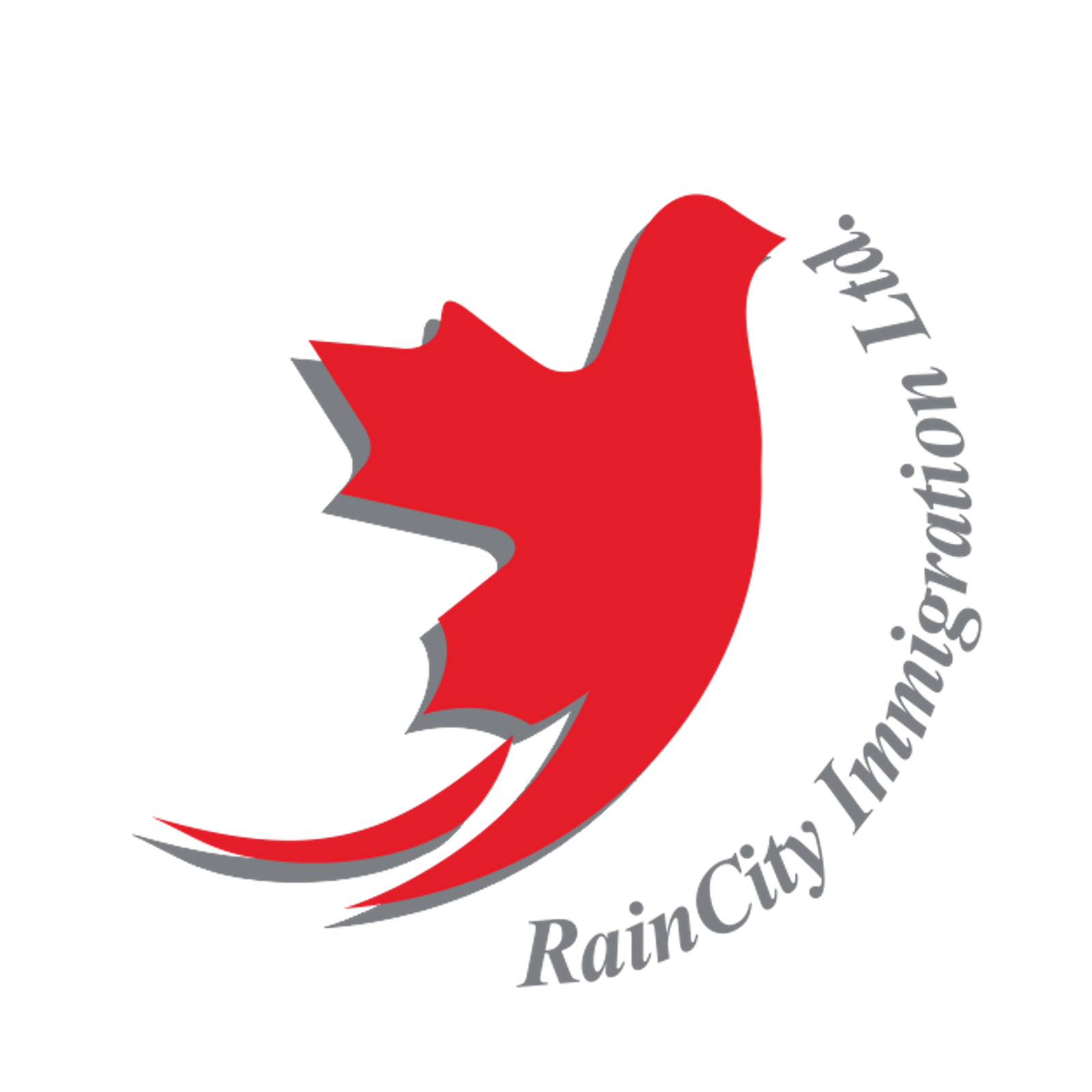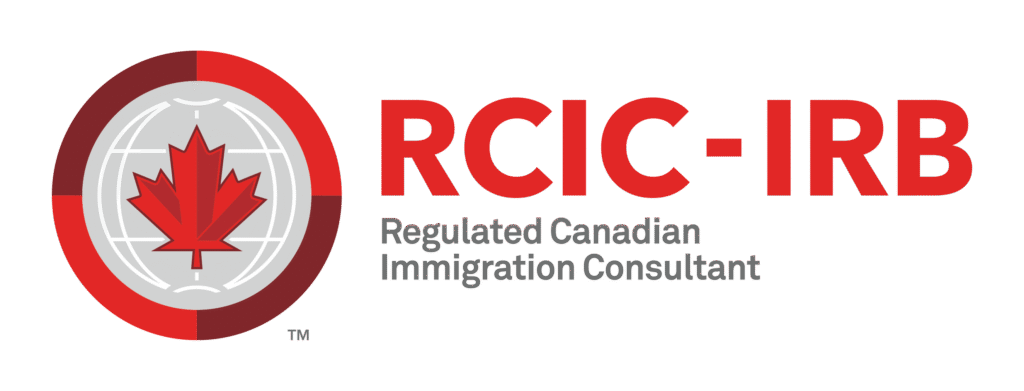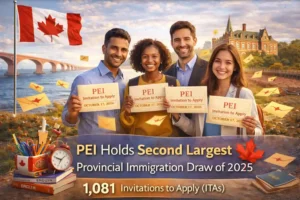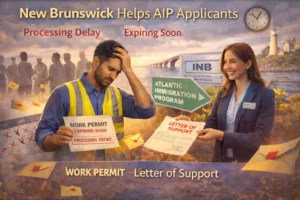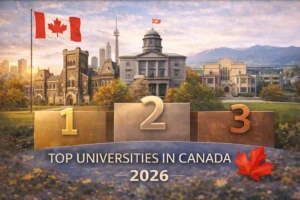Canadian visa
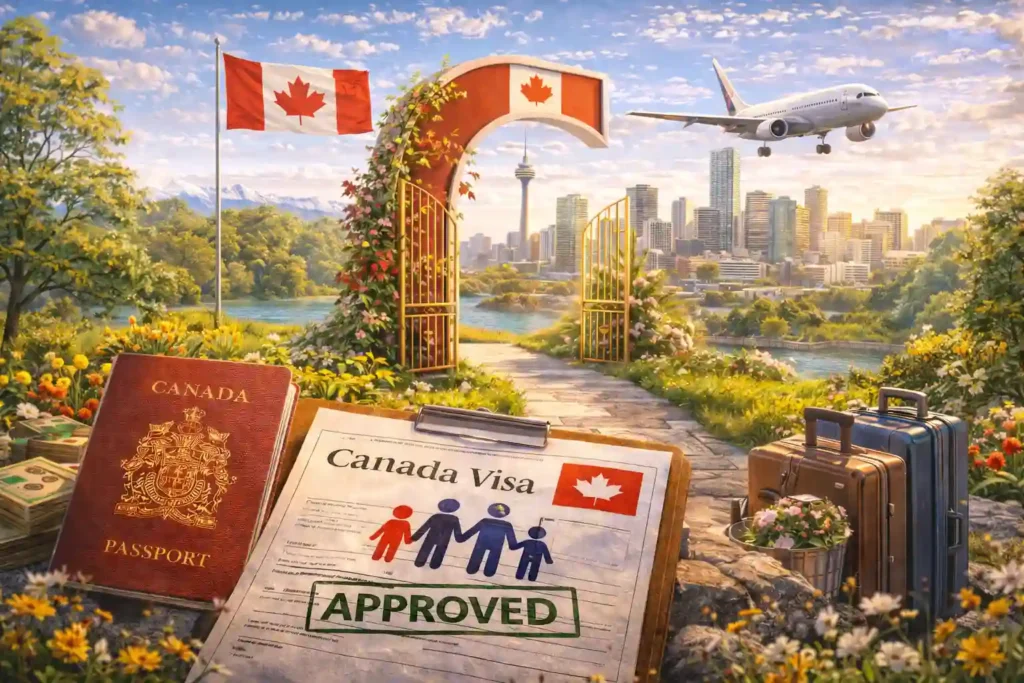
Canada is an ideal country for living and immigrating, both for its social welfare and high living standards, as well as its stunning nature, attracting many immigrants every year. However, the first step to entering this country is obtaining a visa for Canada, which most people, including Iranians, need.
Canada issues visas for various purposes, and currently, there are over 100 programs available for immigration to Canada. Therefore, each person’s path may be unique and different.
If you’re thinking about traveling or immigrating to Canada and you’re looking for more information regarding the types of Canadian visas, the necessary conditions and documents, how to obtain a visa, and other useful information in this area, we recommend reading this article.
Types of Canadian Visas
Canadian visas are generally divided into two categories: permanent residence visas and temporary residence visas. Each of these visas is issued for specific purposes and comes in various types, which we will mention later in the article.
Permanent Residence Visa
The permanent residence visa for Canada is issued to applicants who intend to stay in the country permanently. If you obtain a permanent residence visa, you can immigrate to any province in Canada and live, work, and study there, although the issuance of some types of permanent residence visas is conditional on living in a specific province. The processing time for this type of visa is usually long.
Next, we will refer to the types of permanent residence visas in Canada:
Canada Visa through Skilled Worker
The Canada Skilled Worker program (Federal Skilled Worker Program – FSWP) is one of the three programs under the Express Entry system, designed to attract skilled and professional foreigners and based on a points system. The application for the Skilled Worker group can be carried out in two sub-groups: federal and provincial.
After a year and a half pause in issuing this type of visa, the Government of Canada resumed the Express Entry lottery in its three sub-groups, including Federal Skilled Worker, starting from July 6, 2022.
Canada Visa through Canadian Experience
The Canadian Experience Class (CEC) is another category under Express Entry that allows individuals with at least one year of work experience in Canada to apply for permanent residency in Canada.
Therefore, those who entered Canada on a study permit and worked in Canada for at least a year after graduation, as well as those who came to Canada on a work visa and have one year of work experience in the country (excluding the province of Quebec), can apply for permanent residency in Canada through the CEC program.
Canada visa with a technical and professional certificate
The Federal Skilled Trades program (FSTP) is another category under Express Entry designed to attract foreign individuals with skills and work experience in the trades that are in demand in Canada. This program is also points-based, and to enter the lottery pool, you need to earn the required points.
Canada visa through Quebec experience
The Quebec Experience Program (PEQ) is specifically for foreign graduates of Quebec or temporary foreign workers in Quebec, allowing them to obtain permanent residency in Canada in a short time through this program.
Canada visa in provincial immigration programs
Each of Canada’s provinces offers various immigration programs, commonly referred to as PNPs. Through these programs and in agreement with the federal government of Canada, provinces can select and attract their own immigrants.
Canada visa through investment
The federal government and provincial governments of Canada provide multiple investment programs to attract foreign investors and aid in the country’s economic development, allowing them to gain permanent residency in Canada through these programs.
In Canada’s investment programs, having sufficient capital to start, buy, or develop a business is essential.
Canada visa through entrepreneurship
Each of Canada’s provinces has entrepreneurship programs that set the conditions for obtaining permanent residency in Canada for business owners or senior business managers. With a Canadian entrepreneur visa, one can start a new business in any province or purchase an existing business and grow it.
Canada Startup Visa
The Canada Startup Visa is designed for foreign entrepreneurs who want to launch a new business in the country. Their business should be innovative, tech-based, globally competitive, and have a high growth potential while creating jobs for Canadians.
After receiving a support letter from authorized organizations recognized by Canada, these entrepreneurs can apply for permanent residency in Canada for themselves and their family members.
Canada Self-Employment Visa
The Canada self-employment program allows artists and athletes with relevant work experience to gain permanent residency in Canada and immigrate as self-employed individuals, provided they can make a significant contribution to Canada’s cultural or athletic life.
Canada Family Sponsorship Visa
A Canadian citizen or permanent resident who is 18 years old or older can apply for permanent residency in Canada for their parents, grandparents, spouse, dependent children, adopted children, or non-Canadian partner through the Canada sponsorship visa. Both the sponsor and the sponsored person must meet the requirements for this program.
Canada Marriage Visa
By marrying a Canadian citizen or permanent resident, you can obtain permanent residency in Canada. In this case, your Canadian spouse will take on the financial support responsibility and apply for the Canada marriage visa for you. Once the visa is approved, you’ll receive permanent residency in Canada.
Temporary Resident Visa
The temporary resident visa for Canada is issued to applicants who are seeking temporary stay in Canada. Typically, these individuals enter the country for purposes such as studying, working, or visiting. If they wish to stay in Canada permanently, they need to apply for a permanent residency visa after meeting certain conditions over time through one of the permanent residency pathways.
Next, we’ll review the types of temporary resident visas for Canada:
Canadian visa through education
To study in Canada, you first need to get a study visa and a study permit. The Canadian study visa is issued for various levels including school, bachelor’s, master’s, and PhD programs. You could say that studying is one of the easier and relatively quick ways to immigrate to Canada.
After graduating from university, you can apply for a Post-Graduation Work Permit (PGWP) and then pursue permanent residency in Canada.
Canada Work Visa
The Canada work visa, or work permit, comes in different types and there are various ways to obtain it. For some subcategories of the work visa, obtaining a job offer (valid job proposal) from a Canadian employer is required, while in other categories, it’s possible to apply without a job offer.
As of July 2022, the processing times for Canadian work visa applications have become a bit lengthy.
Canada Tourist Visa
The Canada tourist visa is issued for specific purposes such as visiting family members, friends, and relatives; tourism; or exploring business opportunities in Canada. This visa can be either a single-entry visa, also known as a single visa, or a multiple-entry visa, also referred to as a multiple visa.
Student Accompanying Visa for Canada
If you have a child who is a student planning to study at Canadian schools and obtain a student visa, in this case, you as a parent can accompany your child to Canada. To do this, you will need to obtain a Canadian accompanying visa, which is a type of tourist visa for accompanying, and you should submit your visa application along with your child’s study visa application.
For more information, read on the page about studying in Canadian schools.
Canada Super Visa
If you have a child or grandchild in Canada who is a citizen or permanent resident and is over 18 years old, you can apply for the Canada super visa to visit your children or grandchildren and obtain a multiple-entry visa valid for 10 years. The major advantage of this visa is that with each entry into Canada, you can stay in the country for up to 5 years without needing to renew your status.
Conditions for Obtaining a Canadian Visa
As mentioned earlier, there are various types of visas for entering and immigrating to Canada, each issued for a specific purpose. The most important principle for obtaining a Canadian visa is to meet the necessary criteria for that specific visa type.
Some conditions are common across all visas, while others are unique to particular types. Below, we will outline the general requirements and some specific conditions needed for obtaining Canadian visas.
General Requirements
Be in good physical health.
Complete the medical examinations approved by Canada (usually required for permanent residency visas).
Go through Canada’s fingerprinting process.
Have no criminal record.
Demonstrate that you will leave Canada after your permitted stay (for temporary resident visas).
Show that you have ties to your home country, such as a job, a home, assets, and family, that will ensure your return (for temporary resident visas).
Prove that you have sufficient financial means to support yourself during your stay in Canada. For permanent residency visas, you must show funds equivalent to six months of living expenses, and for temporary resident visas, twelve months, according to the Low Income Cut-off (LICO) table.
LICO stands for Low Income Cut-off, which reflects the minimum income level that corresponds to the poverty line in urban areas of Canada. The LICO amount is published annually by Immigration Canada based on the number of family members.
Specific Requirements
In addition to the general conditions mentioned, each type of Canadian visa has its own specific requirements. Below are some types of Canadian visas and some of their specific criteria.
Federal Skilled Worker Visa
Have work experience in occupations classified under the TEER 0, 1, 2, or 3 job categories in Canada’s National Occupational Classification;
At least one year (1560 hours) of work experience obtained within 12 months;
Have a minimum score of 6 in each of the four language skills in General IELTS or equivalent French score;
Achieve a minimum CRS score.
Canadian Startup Visa
Have a minimum score of 5 in General IELTS;
Obtain a support letter from a designated and approved Canadian organization;
Have an innovative technology-based idea.
Provincial Entrepreneur Visa
Having at least 2 years of ownership or senior management experience in a business.
Having a net worth (the amount varies by province).
Having funds for investment (the amount varies by province).
Conducting an exploratory visit (mandatory for some provinces).
Canada Student Visa
Getting acceptance from a designated learning institution in Canada with a DLI number.
Having sufficient financial means to pay tuition and living expenses for one year.
Having adequate ties to the home country.
Work Visa
Getting a job offer from a Canadian employer.
Obtaining a positive LMIA from the Canadian Ministry of Labor.
Tourist Visa
Having a good travel history.
Having an invitation letter from Canada.
Necessary Documents for Canada Visa
To apply for any type of Canada visa, you need to provide the required documents for that program. Some documents are common for all visas while others are specific to that type of visa.
General Documents
Identification documents such as a valid passport, translated birth certificate, marriage certificate (if applicable), military service discharge or exemption documents for men.
Criminal record check.
Medical examination documents (for Canadian permanent residence visas).
Employment documents such as a job letter, insurance history, recent pay slips, and company registration documents if you own a business, or a business certificate (sample work experience letter for Canada).
Educational documents.
Documents regarding assets like land, house, apartment, shop, car, etc.
Documents related to financial capacity such as a bank letter and account statements.
Specific Documents
Federal Skilled Worker Visa
Language certificate.
Document showing the equivalence of educational credentials from one of the credential assessment organizations in Canada.
Job offer (not mandatory but having one increases CRS points).
Canada Startup Visa
Language certificate.
Support letter from supporting organizations.
Provincial Entrepreneur Visa
Invitation letter from the provincial government.
Support letter from the provincial government.
Business plan.
Canada Student Visa
Letter of Acceptance
Deposit payment receipt (if any)
Scholarship letter (if any)
Work Visa
Job offer letter from the employer
Signed contract between the employer and the applicant
LMIA confirmation letter
Tourist Visa
Invitation letter from relatives or friends
Job and financial documents from the inviter
Medical insurance for potential issues
Cost of a Canadian Visa
Application Processing Fee (varies depending on the type of visa): $100 to $16,000
Biometrics Fee
One person: $85
Two or more people: $170
Medical examination fees (usually required for Canadian permanent residence visas and vary by country): $100 to $400
Photo and document translation fees (varies based on the number of documents): $200 to $500
Educational credential assessment fees plus submission fee (more necessary for permanent residence visas): $200 to $350
Language test fees (IELTS, CELPIP, TEF, TCF): $300
Criminal record check fee (varies by country): $27 to $40
Medical insurance (required for some Canadian temporary residence visas): One month: $150
Required bank balance for the desired visa per person: at least $13,000 to $35,000
Passport application or renewal fee in the home country (varies by country): $20 to $60
Legal service fees (varies depending on the type of visa application): $2,500 to $30,000
The immigration costs to Canada page details the specific amounts related to various permanent and temporary visa types.
How to Obtain a Canadian Visa
1. Assess your eligibility for different types of Canadian visas.
First, consider your conditions like age, language test score, education level, financial strength, etc., and compare them with the requirements for each Canadian visa. The Canada immigration page explains the various immigration programs and Canadian visas, which you can read to evaluate your situation.
If you don’t have enough knowledge to search for information and evaluate your status, you can seek assistance from immigration consultants and lawyers approved by the Canadian immigration office.
2. Choose the immigration program that suits you best.
After assessing your situation and looking into various programs and visas for Canada, it’s now time to choose the best immigration program based on your current conditions.
3. Prepare the necessary documents.
Once you’ve chosen the type of visa, make a checklist of the required documents for that program and scan your documents.
4. Go to the Canadian immigration website and select your desired visa type.
At this stage, you need to choose one from the various types of visas and immigration programs in Canada, such as Work Visa, Visitor Visa, Study Visa, and different immigration programs, and click on it.
5. Create an account and upload the required documents and forms.
Enter your personal information in the account creation section and answer the application questions. Then, upload the necessary documents and forms in the specified sections.
6. Pay the application and fingerprinting fees (if you haven’t done the fingerprinting for Canada before).
After uploading the documents, have your credit card ready and pay the application fees.
7. Make an appointment for fingerprinting at one of the Visa Application Centers (VAC) under the Canadian Embassy and perform your biometrics on the specified date.
After submitting your application, a biometric letter will be sent to you. Go to the VFS Global website, use the information from your biometric letter to book an appointment, and complete the process on the specified date and location.
8. After your visa is approved, send your passport to the Canadian Embassy in neighboring countries to Iran for the visa label, and pick up your Canada visa.
If your visa application is approved, the Canadian immigration office will send you a letter asking you to send your passport for the visa label to be placed in it.
It’s worth mentioning that the steps mentioned are general, and in some immigration programs like investment visas, entrepreneurial visas, or Provincial Nominee Programs (PNP), there are additional steps like interviews or exploratory trips. For more information on this, you can read the page related to each program mentioned at the beginning of the article.
Chances of Getting a Canadian Visa
Whether your chances of getting a Canadian visa are high or low depends on your circumstances. It might be that your situation gives you a good chance for a student visa to Canada, but not much chance for an investment visa.
To continue with what has been said, it’s important to note that there are factors that can increase your chances of getting a visa. By taking these into consideration, you can get a little closer to your goal. Below, we will mention the factors that boost the chances of obtaining temporary residence visas and permanent residence visas for Canada.
Factors that Increase Chances for Canada’s Temporary Residence Visas
For short-term visas like study, work, or visitor visas to Canada, any factor that shows you will leave Canada after your short stay will help:
These factors need to be present in your home country and include:
– Having family and relatives
– Having a job or a better job offer, or owning a business and having employees working there
– Owning assets like a house, land, or a shop
Factors that Increase Chances for Canada’s Permanent Residence Visas
In Canada’s permanent residence programs, such as Express Entry and the Federal Skilled Worker program (which is a part of Express Entry) or provincial investment and entrepreneurship programs based on point scoring, any factor that increases your points for these programs will also boost your visa chances, such as:
– Getting a higher language score (English or French) and/or providing a second language (English or French)
– Increasing net worth and/or increasing investment amounts
– Having more work experience
– Having a higher educational qualification
– Being younger
– Receiving a job offer in the Federal Express Entry program
– Having immediate relatives in Canada
– The applicant’s spouse’s English or French language skills (if married)
– The education of the applicant’s spouse and children in Canada (if married)
– The applicant’s spouse’s work experience in Canada (if married)
Next in the article, we will look at the statistics related to obtaining various Canadian visas.
Canadian Visa for Iranians
Iranians are among those who apply for immigration to Canada every year through various methods, and a significant number of them manage to get visas. Although the issuance of visas for all applicants around the world, including Iranians, dropped during 2020 and 2021 due to the COVID-19 pandemic, it’s fortunately returned to a more normal pace since the beginning of 2022.
Processing times for applications
The processing time for a Canadian visa depends on the type of visa. For temporary resident visas, the processing time is usually less than 6 months, whereas for permanent resident visas, the processing of applications takes 6 months or more.
Tourist Visa | 109 days
Super Visa | 109 days
Student Visa | 13 weeks
Work Visa | 27 weeks
Atlantic Immigration Program | 7 months
Federal Skilled Worker | 5 months
Canadian Experience Class | 5 months
Federal Skilled Trades | —
Provincial Nominee Program | 6 months
Self-Employed | 50 months
Quebec Investor | 45 months
Quebec Skilled Worker | 9 months
Startup Visa | 38 months
Spousal Sponsorship (inside Canada) | 10 months
Spousal Sponsorship (outside Canada) | 10 months
Child Sponsorship | —
Parents and Grandparents Sponsorship | 24 months
It’s worth mentioning that the processing times for Canadian visa applications don’t always follow what’s specified on the Immigration Canada website, and they can take less or more time than indicated.
How to Track Your Visa Response
After submitting your visa application and completing biometrics, you can track your visa response through several methods:
1. Daily Check of the Visa Portal: Check your portal regularly, where you submitted your visa documents, every day. For this, log in to your visa account on the Immigration Canada website and enter your username and password. Once logged into the portal, check your application status in the “Check Application Status” section for the latest update on your case.
Read more: Sample Email for Canada Visa Approval
2. Submitting a Web Form: If the processing time for your visa application becomes lengthy, submit a web form to follow up on your visa result. A web form is an online tool for submitting requests in the form of a completed application, where you can describe your request in the specified section. Read the complete guide in the article on the Canada Web Form.
3. Emailing the Canadian Immigration Office: Another way to check the status of your visa is by sending an email to the Canadian Immigration Office. In this case, submit your request or question to the email address question@cic.gc.ca.
4. Calling the Canadian Immigration Office: Another method to follow up on your visa response is to call the Canadian Immigration Office.
The relevant phone numbers are:
If you are outside Canada: +1 613 944 4000
If you are inside Canada: 1 888 242 2100
We recommend that you don’t call the Canadian Immigration Office repeatedly. If you face delays in responses and visa issuance, it’s better to prioritize methods 1 to 3, and only call them if you still don’t get a response.
5. Corresponding with a Member of Parliament in Canada:
If you’ve tried methods 1 to 4 and still haven’t gotten a result, the next step is to correspond with a Member of Parliament (MP) from the province where you plan to settle later. However, this is only possible if you have relatives in Canada who are citizens or permanent residents and can help you with this.
To do this, visit the Parliament of Canada’s website, select your desired MP, and communicate with them regarding the status of your visa application.
Members of Parliament in Canada have the authority to directly speak with officers at the Canadian Immigration Office and can follow up on the status of your case and receive a specific response.
Visa Denial in Canada
The Canadian government, in line with its immigration policies, has a limited annual capacity for visa issuance across various categories. Therefore, it’s natural that not all applications lead to visa approval, and some of them may be rejected. However, you shouldn’t lose hope, as a visa rejection is not the end of the road.
After a rejection, there are a few ways to reinitiate your visa application:
Reapplying for a visa or resubmitting
Requesting reconsideration of the visa
Appealing in the Federal Court of Canada
On the page listing the reasons for Canada’s visa denial, you will find all the information you need for the post-rejection phase. By reading this page, you’ll be able to make the right decision for the next step.
RainCity Services for Obtaining a Canadian Visa
Consultation regarding various immigration programs and Canadian visas
Assistance in obtaining admission to schools, colleges, and universities in Canada, along with scholarship opportunities
Obtaining a Canadian study visa
Obtaining various work visas
Obtaining various business visas (entrepreneurship, investment, startup, self-employment)
Providing services related to company registration in Canada
Offering services for purchasing businesses and buying franchises in Canada
Providing services for buying, renting housing, and reserving dormitories
Frequently asked questions
Is getting a Canadian visa guaranteed?
No, getting a visa is not guaranteed, and the decision regarding the visa outcomes rests with the immigration officers in Canada. The role of immigration consultants and lawyers is to prepare the visa application and submit it; they cannot guarantee a positive outcome.
Is obtaining a Canadian visa free?
The answer to this question is no. Obtaining any type of visa incurs costs. Part of the fees goes to the Canadian immigration department for processing the visa application, and another portion is spent on document translation, preparation, obtaining language certificates, fingerprinting, and so on.
How can one get a Canadian visa?
The first step for obtaining any type of visa is to assess your circumstances and then choose the best immigration method based on those conditions. In the following steps, it is necessary to gather the required documents for that specific type of visa and submit your application online through the Canadian immigration website along with the necessary documents. For more detailed information in this regard, please refer to the “How to Obtain a Canadian Visa” section of this article.
Which countries can be traveled to with a Canadian visa?
Mexico
Costa Rica
Belize
Panama
Islands of Antigua and Barbuda
Bermuda
Anguilla
British Virgin Islands
Cuba
Dominican Republic
Turks and Caicos Islands
Montenegro
Georgia
North Macedonia
Qatar
How long does it take to get a response for a Canadian visa?
The duration of the review of cases varies depending on the type of visa. The answer to Canadian temporary residence visas usually takes from one week to 6 months, and receiving the results of Canadian permanent residence visas usually takes 6 months or more. This duration was expressed as an average and experience has shown that the duration of processing Canadian visa cases is constantly changing depending on the conditions of the embassy.
How long is a Canadian visa valid for?
The validity period varies depending on the type of visa. For instance, a study visa is valid for the duration of the course of study, work visas are usually valid for 2 years, and tourist visas for Iranians are generally valid for 5 years.
What is the bank balance requirement for a Canadian tourist visa?
For a Canadian tourist visa, you need to provide bank funds equal to the cost of living for the duration of your stay in Canada. Usually, the cost of living in Canada is 2 thousand dollars.
For example, if you want to stay in Canada for 3 months, you must provide at least $6,000,000 in bank funds. It is also necessary to purchase medical insurance for the duration of your stay in Canada. The cost of medical insurance is about 5 dollars per day, and for a period of three months, its amount is 450 dollars, which must be added to the total bank balance.
For Iranians, it is recommended to provide a higher amount.
